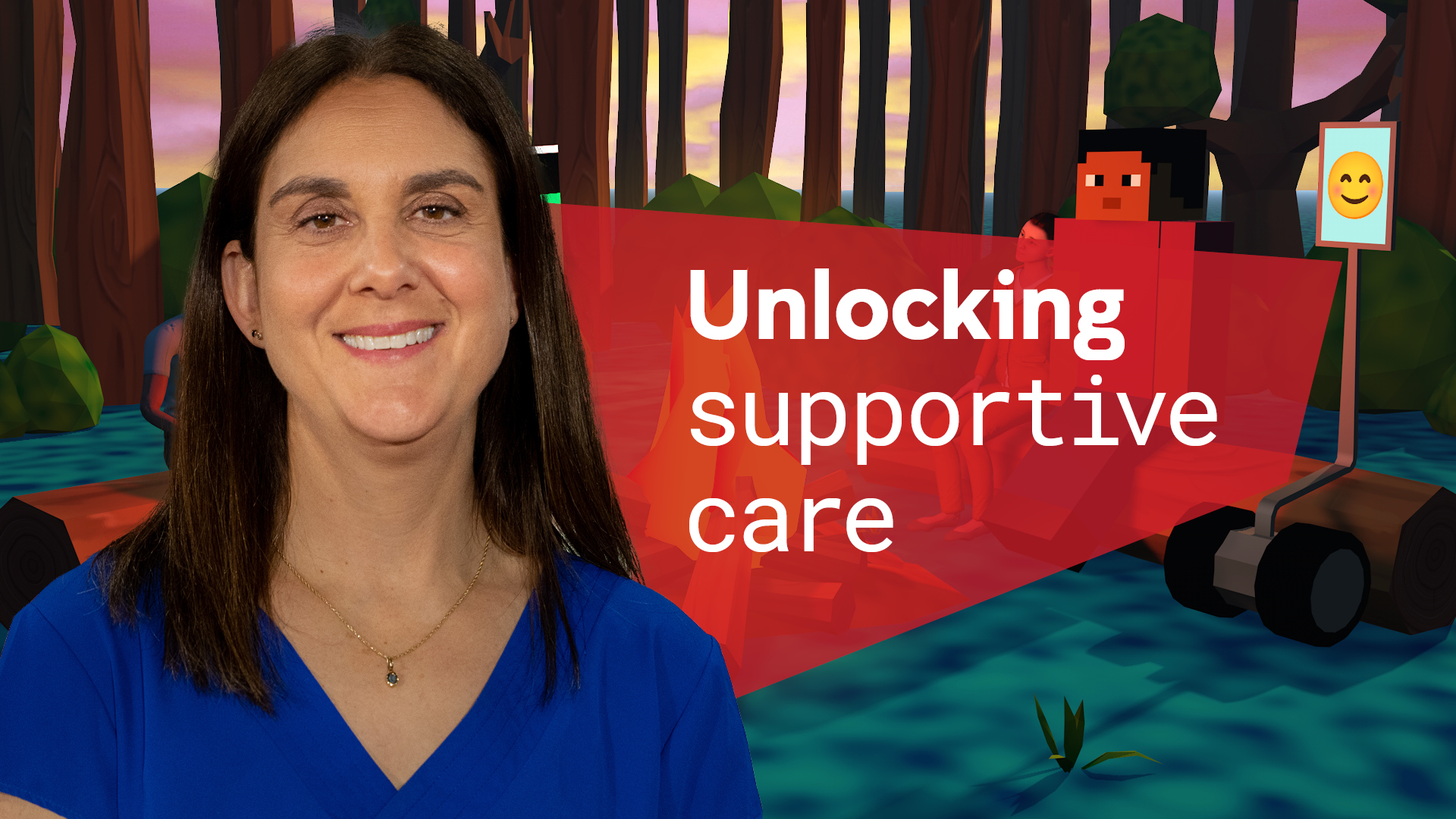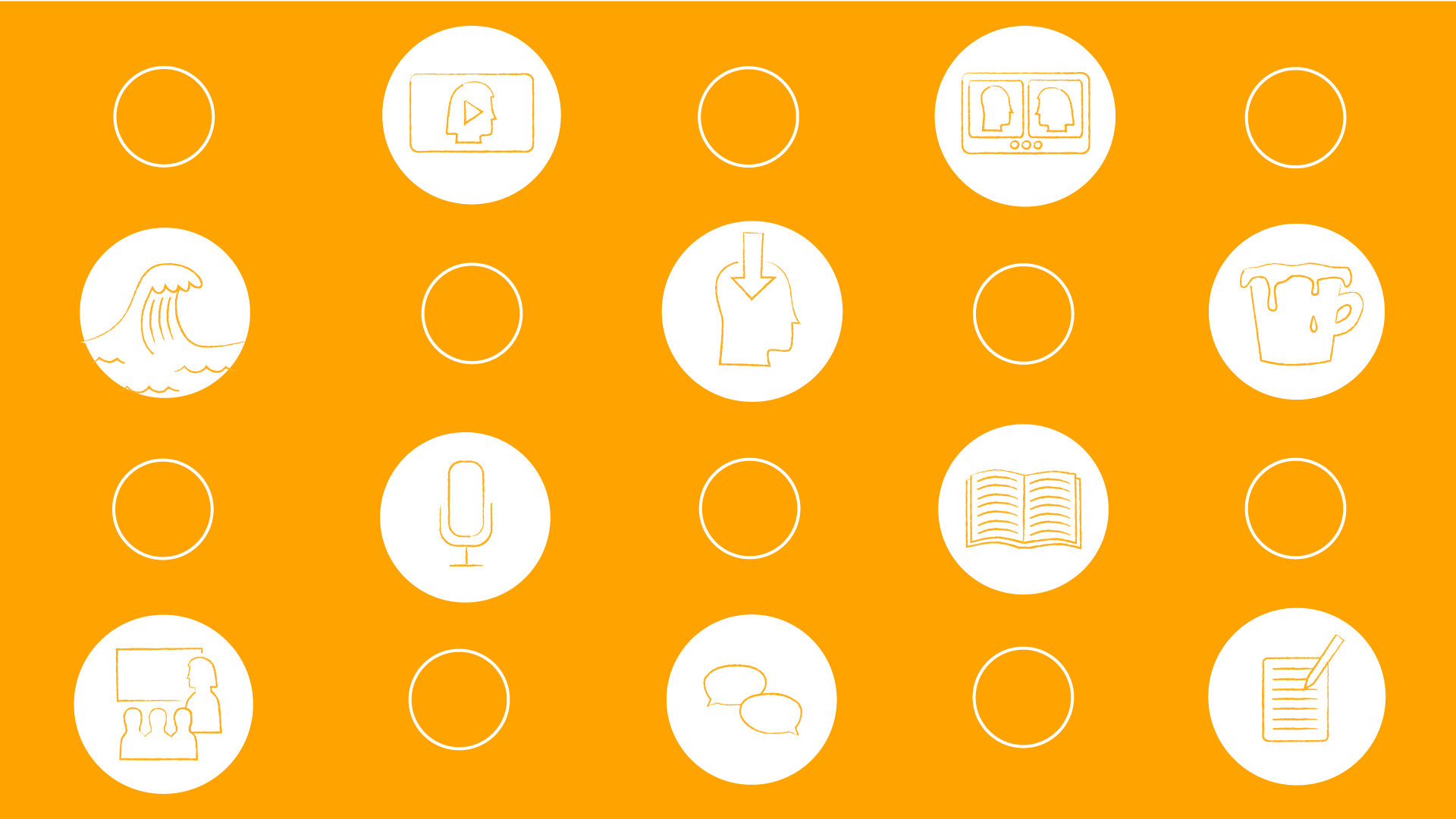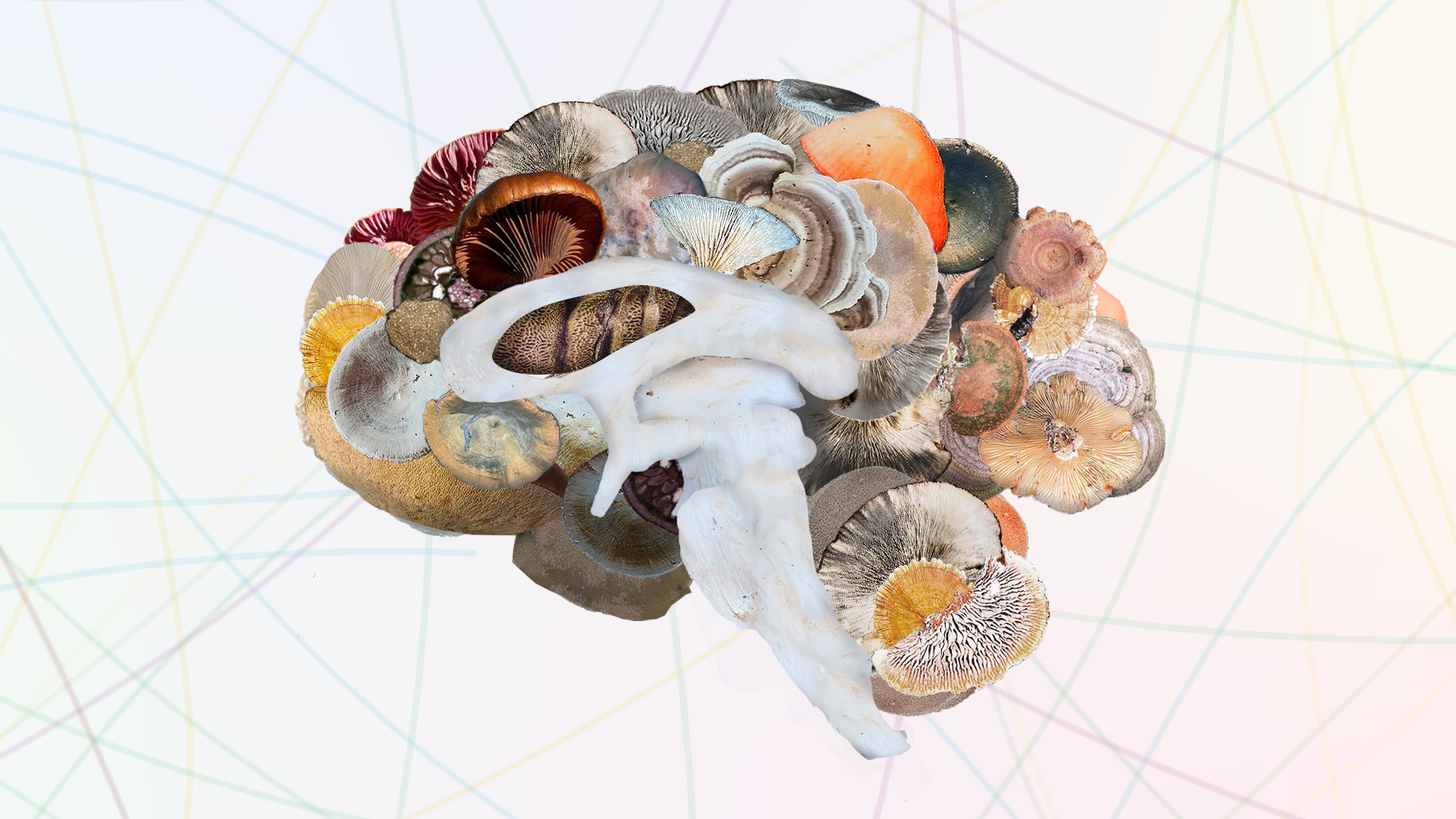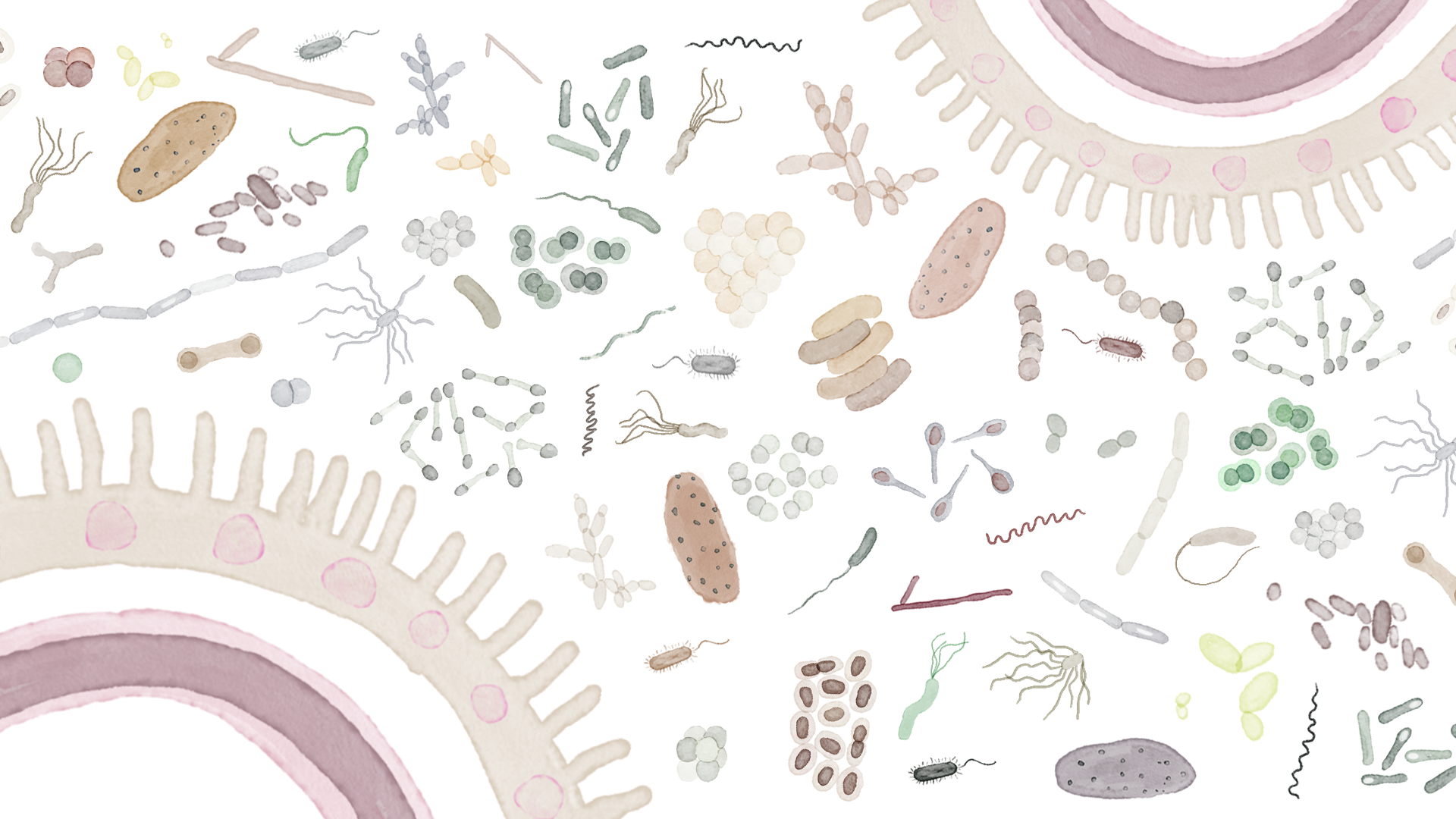Jennifer Cohen | Unlocking the future of supportive care
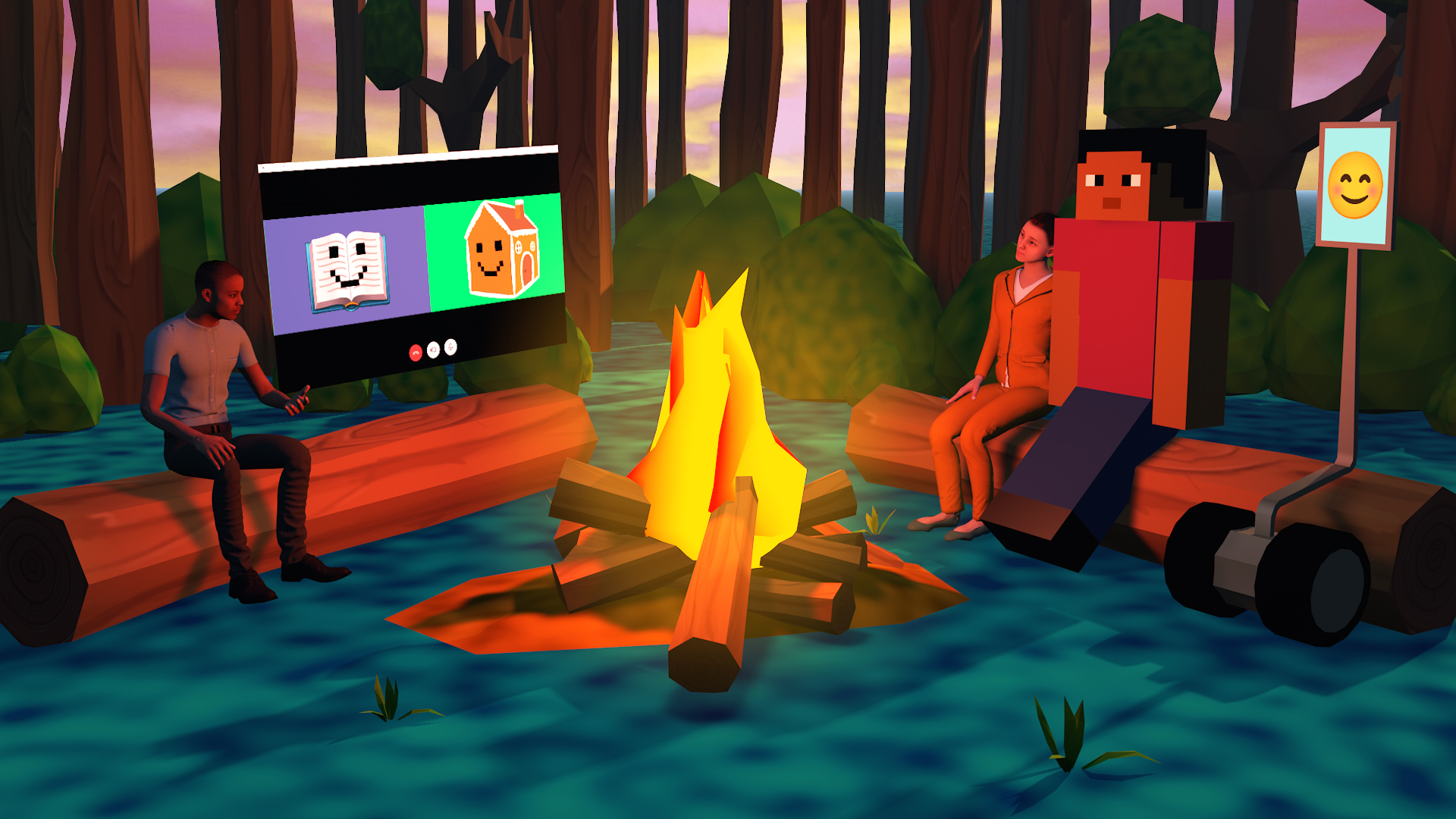
The beauty of an online health community is that it is accessible 24/7.
For a lot of us, the pandemic years were characterised with the rise of working from home. We’ve become all too familiar with Zoom fatigue… one of the many new words we have added to our vocabulary over the past two years of the pandemic along with social distancing, doom scrolling and hybrid working. And while many of us are looking forward to socialising IRL (in real life) again, for those of us who are critically ill, these rapid developments in digital technology have meant an end to social isolation. So as these technologies continue to advance and innovate, but we as a society return to face-to-face life, will digital technology completely replace in person supportive care for young people impacted by critical illness?
Transcript
Ann Mossop: In a world of global pandemics, climate emergencies, and ever-increasing costs of living, it's understandable that we might feel fearful about what the future holds. But as we make our way through the 21st century, there are, in fact, many new and exciting discoveries which can improve our lives. I'm Ann Mossop, director of the UNSW Centre for Ideas. Welcome to What comes next? From the potential healing powers of magic mushrooms in mental health, to how x-ray vision might help us transition to a renewable economy. In this 10-part series, we'll hear from UNSW Sydney’s brightest minds, unpacking some of the big ideas, which are integral to our 21st century challenges.
While many of us are looking forward to the end of zoom calls, for those who are critically ill or supporting those who are critically ill, rapid developments in digital technology fostered by the pandemic have meant an end to social isolation. UNSW Sydney Senior Research Fellow Jennifer Cohen shares how the Zoom call for some can be the very opposite of fatiguing.
Jennifer Cohen: Josh is 17 and spends his nights in front of the computer playing games, late into the evening, trying to shut up the world around him. He goes to bed late, sleeps through his alarm, and fails to turn in his homework at school for the fifth time that term. At the end of a long day, he gets a text from his mother, asking him to pick up groceries on his way home from school. As she's not feeling well, and is heading to bed, and his dad's working late. Josh gets home, makes dinner for his sisters and helps them with their homework. When his dad finally gets home, Josh goes to his room, shuts his door and breathes a sigh of relief. He turns on his computer and his mate Ollie from Sydney’s online. And smiling for the first time that day, he settles in for an evening of gaming.
Listening to Josh's story, I bet you're thinking that all of this homework avoidance, forgetfulness, is pretty irresponsible. Would you feel different if I told you that his mom has cancer, and it's taken a huge toll on the family? The chemotherapy is tough and his mom is sleeping a lot of the day. His dad has had to work long hours, and Josh has taken a caring role for his sisters. So that's left no time for him to hang with his friends. Josh feels alone and his friends just don't get it. And in this world of gaming, he gets to escape his life for a brief moment. And this is no ordinary group of friends. These friends also have a parent going through cancer. And these are friends who just get what he's going through.
I'm lucky enough to work for an organization called Canteen. You would know them if you've ever bought a bandana. Canteen supports the 23,000 teens and young adults around Australia whose lives have been turned upside down by cancer, either their own or that of a parent or sibling. And when cancer comes crashing into their lives, Canteen is there to support them. For kids like Josh, this cancer experience happens at a critical time in their lives. Teenage hood, it's a huge time of change. It's when teens are figuring out their independence, their relationships. They're exploring what life is going to look like after school. And this time is usually a time of great hope. But for kids like Josh, with the knowledge that his mum is fighting for her life, it is a profoundly isolating time. My role is to listen to their voices and make sure kids like Josh from around Australia get the best support possible.
What I didn't mention is that Josh is from Alice Springs and his friends do not understand what he's going through, and he's not likely to meet other kids his age who understand his pain. And unfortunately, Josh can't leave his family to travel to Sydney to attend a peer support camp or go to the Queensland office to hang with other kids his own age. Josh is isolated from the peer support he unknowingly craves. Digital technology has the potential to bridge that gap. Technology has had a far, deep and impactful change in our lives. Even in the last 10 years. We now carry a computer in our pocket, enabling us to connect with friends, work, family, with little more than decent Wi Fi. We're able to check Facebook, or Instagram, or TikTok, for brief moments into our friends and families lives when they're not there.
But digital is so much more than social media. We're seeing huge changes in how digital technology is used in the healthcare setting. We now have apps to track our blood pressure, our sleep, our eating, our physical activity. We can connect with the GP through a camera. I've always been interested in how we can use digital technology to support people going through cancer. I used to work as a pediatric dietitian, and created an online program for parents to help with their children's intake after their child's cancer treatment. And what I learned is that digital technology is often seen as an inferior substitute to face to face. Digital technology also has a reputation as a time waster. I know I've spent quite a lot of time scrolling through social media. But digital is more, and using the right way, digital technology can be life changing.
We're now finding new ways of connecting that would not have been possible in traditional forms. Canteen’s developed an online health community, which users can access through an app on their phone, allowing kids with the same cancer experience to chat in real time from their home or hospital. And when we researched the impact that being part of Canteen Connect had we found that users were less lonely, less anxious and less distressed. And the reason for this is that they were able to talk to kids their own age about cancer. Even if living in Alice Springs.
Other teens and young adults Canteen help are those with their own cancer diagnosis. Katie is 14 and her greatest desire is to go to school, to see her friends, her teachers. Instead, she's stuck in hospital going through cancer treatment. She feels like she's missing out, stuck in hospital, and she feels more and more isolated every day. But luckily, Katie can access a telepresence robot, which lets her connect with school when stuck at home or in the hospital. A telepresence robot is amazing technology. Think of a robot as an iPad on a segway. And the robot sits at school and can be controlled by Katie from home or hospital. Katie can move the robot around the classroom, she can go drama classes, music classes, even hang with her friends at lunchtime. And the beauty of the robot is that she can stay connected with her friends. But our research shows that the most important part of the telepresence robot is, it lets cancer patients take some control back in their lives, which had been taken away because of cancer.
The kids like Josh, online health communities, and robots, may not be what he needs. And digital technology is not a one size fits all. For Josh who may not want counseling, gaming can give him some of the support that he needs. For those who don't know Minecraft, it's a virtual world that you can build and explore by yourself or with friends. And when Josh is playing Minecraft with his friends, he can forget about his mother's cancer. Even for just a brief moment, he can hang with his friends who are also going through their own cancer journey, helping Josh to feel less lonely. This virtual world is so much more than connecting with friends. Josh's friend Ollie wanted to honor his mother who had recently passed away from cancer. So Ollie created a memorial within this minecraft world. The memorial though was hidden away, and it was Ollie’s way of expressing his grief. We are now exploring how to use these online worlds further by taking our in person adventure program into the virtual reality space. For kids like Josh, Katie and Ollie who can't attend a camp because of their treatment or distance. They can still attend the camp virtually. They can do abseiling, rock climbing, hiking, they can sit around a campfire, all from the comfort of their own bedroom. Digital technology continues to move at such a fast pace. And the future of digital support programs is only going to be limited by our imagination. Digital technology is not about replacing in person care, but rather finding new creative ways to support teens and young adults who are not ready or able to get support in person.
Ann Mossop: Jennifer, thanks for coming to talk to us.
Jennifer Cohen: Thank you so much for having me.
Ann Mossop: When did you first start using digital technology to help support patients and their family and carers?
Jennifer Cohen: The first time I used digital technology was when we created an online program which was aimed at parents to help their child's eating after their cancer treatments. So, during my, actually my work in PhD, I'd found that we see a lot of fussy eating after a child goes through cancer treatment. So we developed, then, a program to help parents help their children with their eating. The original program had been a telephone based program with a manual. And then we realized that for this program to be available to more kids and more families, we realized we needed to move it online into the digital space. So then the next version of Reboot, which is our online program, we moved online, to make it more accessible to parents and kids after treatment. And that was really how the interest in digital started.
Ann Mossop: And so obviously, that interest is accelerated. But I just want to go back to this, because you've got a really interesting background in that you're trained in nutrition. And now you're really doing research into the impact of digital technology, and the bridge for those things, it has been the fact that you work with kids who have cancer or have family members who have cancer, and that you've got a role where you work both with Canteen, the organization that supports kids, but you're also doing research. So you started off in the food space, tell us about what that work was.
Jennifer Cohen: Actually, if you want to go way back, when I first got to university, I was actually studying food technology, got halfway through a degree I was at UNSW, I got halfway through the degree, realized that I was much better with the biological science and then the chemical and physical sciences. So then, I transferred into a nutrition science degree, and then did my masters in nutrition and dietetics. So that got me into the field of dietetics.
Ann Mossop: Tell us, what is dietetics?
Jennifer Cohen: So my degree was a Master's of Nutrition and Dietetics. So dietetics is more focusing on that role of nutrition and disease. And that's where I guess that’s the difference between what a nutritionist is and a dietitian. So dietitians specifically looking at that link, they do both, looking at, obviously, nutrition for general health, but there is that focus on disease and nutrition. So my first ever role was at Royal Prince Alfred Hospital working in the oncology unit there. So the hematology unit, and the medical oncology, so seeing adults with cancer and helping support them, through nutrition. And you're right that I think for me, it's that cancer has been the… even though the journey has been interesting and varied with my roles, that cancer has stayed the same. So started in adult cancer and then moved into pediatric oncology nutrition, after a couple of years.
Ann Mossop: And what do you have to think about? What are the specific things that you think about in terms of nutrition for cancer patients? You know, looking at it from the outside, obviously, you know, you assume that there is a whole bunch of different things that get upset by cancer and its treatment, but what kind of work did you do supporting those patients?
Jennifer Cohen: So it's, the concept is the same for adults and kids with cancer, what we're trying to do… so we know, as you said, that their chemotherapy, radiotherapy treatment is pretty tough, can have side effects like taste and smell changes, nausea, vomiting, diarrhea, and it stops you eating. If you're not eating, then you're not getting enough nutrition, and then you're starting to lose weight. And what we know from the research is that if you lose too much weight during cancer treatment, it can actually increase things like infections during treatment, hospitalizations, and there is, even, some thoughts that it can increase, sort of, outcomes as well, impact on outcomes. That's still early research work, but we definitely know it can impact the ability of someone to tolerate their treatment.
In the childhood cancer space, all of those still hold, but you're also giving treatment, when a child is growing and developing, especially those who are babies, or one or two years of age. This is when their peak growth development, peak brain development, and we need to support their nutrition to make sure that they're not losing weight during treatment. So with adults, we tend to do that, you know, giving them ways of, you know, maximizing their nutrition through what we call a high energy diet. Fortunately, with kids, it's really hard. You can't really convince a child to eat, if they don't feel like it, it's hard enough to do it in adults. So we actually tend to use a lot of, what we call, artificial feedings. So nasogastric feeding, which is a tube through their nose, or an intravenous nutrition. So again, when you think of a dietitian, you wouldn't be thinking about those medical interventions. But in the kids' space, that's a lot of what they did when I saw patients day to day.
Ann Mossop: And so, how did it come about that you started working much more in this space with digital technology, and a whole different set of tools for supporting people through cancer journeys?
Jennifer Cohen: It’s a story. So I, when I moved into my role at the Sydney Children's Hospital, my role actually had a half research, half clinical focus, which is highly unusual. But it's, I think, very, very, very valuable. And I'd love to see more of that supporting allied health clinicians in hospitals, and not just dietitians, physios, social workers, to have that half research, half clinical load, because I was then identifying, I guess, some of the issues that I was seeing in, you know, in nutrition, in my care, and then I had that capacity or a little, a little bit of protected time, not as much as I would like, a little bit of protected time to be able to then research the problem. So then my earlier work had been, what I discovered is that, there was me and I was available for those during treatment, but once treatment was over, we were starting to see that a lot of our kids, they didn't go back to their eating patterns, pre cancer. So we saw a lot of fussy eating. And we've actually just had a study published in the last year showing that, childhood cancer patients, after treatment actually have higher rates of fussy eating than you would see for the same age peers. So it had been the hypothesis all along, we've actually got the research to back that up now. But I was seeing a lot of, you know, fussy eating and lots of issues with eating, but I didn't have the funding or the time to be able to support people through, you know, parents to help their children during that time. So that's why we developed the program. So then we actually adapted a program that had been developed actually out of Newcastle University, helping improve new fruit and vegetable intake in kids in the general population. We adapted it for our contexts, and then it got moved online, once we realized the program helped. We're like, we want it, it's all about being accessible to all. And that doing something that's on telephones still takes a lot of funding, a lot of time, but if you can move something online, then it's going to be more accessible to others. And really, that is where that digital technology, I guess, came about really.
Ann Mossop: So that raises a really interesting point. Some of the things that you talk about in your talk are really about how we need to think about digital as something in its own right. Not just a substitute for in person care. That the constraints of the health system, and the constraints of the financial support for that don't allow us to provide. So, you know, that support for parents working to help their kids eat better post cancer treatment, that's an example of something where, where you're saying, well, actually, we can make it accessible to a whole lot of people who we couldn't actually get to, and we make a resource, and that it's very valuable. But, you know, this is obviously something that you have to think about in relation to the work that you're doing with kids with cancer, or who've got close family members with cancer about this question, what are the things that need to be in person? And what are the things that are really good when they're digital? How do you think about that?
Jennifer Cohen: I think, it's not the same answer for the same kind of program. So say, for example, with the nutrition program, when I started, the online work, so think of those who are having problems with their eating after cancer treatment is like a pyramid. For those who were, you know, the treatment and who sort of stopped eating, it's not great, but it's okay, then a program like this is going to work. But for those who've got food aversions, food phobia, they were treated as babies and never learned how to eat and chew properly, then we know this program isn't the right program, that's when they need to be seen in person. So, I think the concept of digital and where people say, oh digital doesn't work, it's about finding the right program for the right situation, and it's not about replacing one or the other.
So, one of the programs I talked about was our online health community, Canteen Connect. So it's a way for teens and young adults who are going through a cancer experience to be able to talk to friends online. And that's great. And that is really useful. And for some, that's all they want to do, you know, they don't want to go to a camp or go to a Canteen office and see another young person, you know, in person. They want to maybe be anonymous, they maybe don't want to show their face, or they just can't travel. And in the case of the last few years with the pandemic, no one could travel.
Ann Mossop: It applied to everybody.
Jennifer Cohen: Everyone. So in that case, Canteen Connect is providing a way of connecting with other people their age, for those who want to. But it's not about replacing it because there are some people who, you know, are wanting to go on, like we have, Canteen has camps. So young people go away for a few days, they meet other young people, they do some fun things, they also do some supportive care. So they might do some sessions helping with their mental health and well-being. And some people want to do that. And that online is necessarily not going to replace that. It's more about, for some people online suits, for some people face to face suits. For some, it's about both. And for some, it's like, yeah, they want to be at camp, but they can't, they're either having cancer treatment, or they can't travel or they're in a pandemic, that is not about one or the other or digital replacing face to face. It's about both. I mean, I'm sure a lot of listeners would have done telehealth appointments with their GP’s. Some of those during the pandemic worked well for me, you know, I could sit and do work while I'm waiting for the GP to call me 45 minutes later, and we could, you know, talk through, but there was something that I needed to go and see the GP and the GP is like, you have to come in person. So it's again, it's not one or the other. It's about both. And that's what we're seeing.
Ann Mossop: And I think one of the really interesting points you make in your talk is, also it's about young people, who are in these really, really difficult situations having some agency and some choice and some control. And you also point out, you can see, actually that it's their medium, they're completely at home in that world and it works for them.
Jennifer Cohen: Yeah, definitely. And I think that's probably the greatest struggle you know, I'm someone who uses digital technology, I feel comfortable with it, love my phone, do spend a little bit too much time on the socials, but it will never be as ingrained or entrenched in my life as those who are teenagers and young adults now. It's not even probably the young adults, it’s those who are 15 and 16, or even younger. So the ones who are growing up now, it's so part of their lives, that they don't know any different. So to them, this is a normal way of communicating. And it seems odd to someone like me, because I didn't grow up with it, it came a little bit later. But you're right for someone who's 12, 13, 14, this is what they know, and it's comfortable. And, you know, if we take the cancer space where something, you know, really tough is happening in their life. We don't need to say well, okay, something tough is happening in your life. But let's do something that's completely out of your comfort zone. Let's start with something that isn't you…
Ann Mossop: Let's make you read a book, for example.
Jennifer Cohen: Exactly. How about we start with something like, okay, well, we know that it'd be good for you to talk with someone else your own age, but you know, you're not going to then necessarily turn up and do that in person. So let's start with speaking with someone digitally, by, you know, not even speaking in real life, they're typing, they're using emojis, they're using memes, like, it's not even the way we speak, the way they they interact is different, and that's comfortable. It's all about getting supportive care. Start with what's comfortable, what's part of their lives, and then we can, you know, for some, we can move into other face to face programs, camps, and other more traditional forms of supportive care.
Ann Mossop: One of the things that you talk about is a kid, whose mother is very ill, playing computer games. And you know, you make us see that in a completely different way, as something that is a really important escape and means of social connection. We see games as potentially, you know, something that's a hobby, a distraction, but what you see, and it is something different, that they can be incredibly positive in themselves. Tell us a little bit more about that.
Jennifer Cohen: Yeah, so what I didn't unpack in the talk, is that I talked about Minecraft. Minecraft is just one example. It could be a you know, your Fortnite, it could be any of the other multitude of games, but a lot of them, they actually have a term, it's called ‘serious games’. So they're, they're games that yes, they're doing, as we know, gaming, but there's something that's helping at the same time. So it's a, I don't know how long the word ‘serious games’ has been around, but really, that's what we're looking at, is taking gaming and this online world, and it's for a point beyond purely that escapism.
Now, in reality, if you're, you know, someone like 17-year-old Josh, who I talked about, who's taken a lot of burden of the family during cancer, then escapism is what actually he needs and that in itself is something that could be really supportive for him and potentially could help with his mental health and his wellbeing. So this is where even I struggle, and a lot struggle, because it just is like the gaming world in itself can help them it's not seen as a distraction. But then you've got that next level, of you know, something like Minecraft where they can build worlds together and they can communicate within the world. And think of a 17-year-old boy, they're probably not going to talk about their feelings with their mates openly. But if they can do it in a much more comfortable way, then that's got an additional benefit. So not only is it about that escapism, but also that peer connection. And that's really, really important that there's research that shows that connecting with other kids their own age, who are going through the same cancer experience, is really, really helpful with well-being during this time. So it's about us unpacking, what is it about those serious games that's helping them? And what are those psychosocial benefits? And I think they're there. And we want to start unpacking those even more. And that's some research we're looking to do in the next 12 months.
Ann Mossop: So interesting, because we're so used to looking more at the problematic side of gaming. So it's very interesting to see that there is that other side of it, as well. You're obviously working with kids who are sometimes going through their own cancer experience, or have a close family member doing it. What does that mean for the emotional tenor of a day at work?
Jennifer Cohen: You know, it's, I mean, I've been doing cancer services for a long time. And if you ask the same question to a doctor, or anyone else, it really is part of the role. You know, and I don't, I no longer work as a clinical dietitian, on the wards. I did it for two years in adults, about 15 years with kids. And now I've moved into, you know, research into evaluation at Canteen, and probably a lot of that, is that, okay, you know, emotionally, it gets harder, I've got an 8 and 10 year old as well. And I remember coming back from maternity leave, and it's like all of a sudden, those kids are my kids' age. So, I'm not pretending that we, you know, that it wasn't tough. And it wasn't a reason I left the clinical space. But I think there is a little bit of that after doing it for 15 plus years, I've never counted, but it was a while. You know what, it was also time to take what I had learned as a clinician and take the skills that I had then got as a researcher, finishing my PhD, and be able to use them in other spaces. And I think, you know, people asked me what I do, I've only recently stopped saying that I'm a dietician, my identity as a dietitian is always going to be there. Right now, I'm not doing a lot of nutrition evaluation. Our Reboot program is still, we're doing a randomized control trial. So we're doing like the next phase of that trial for Reboot, to see, so we're comparing those who go through the Reboot program, to those who don't, and seeing if it is helping improve fruit and vegetable intake. So that's almost finished. Looking forward to seeing those results. I'm still doing some nutrition work. But now what I've done is, I've learned new skills in research and evaluation, and applying that. But I think for me, is because I've worked in that cancer space for so long, I think that's been the norm throughout rather than the dietetics, it's the cancer space that has.
Ann Mossop: And what are the tricks of the trade for people who work in cancer services, for actually staying sane while doing that kind of work, especially with kids?
Jennifer Cohen: Yeah, you know what, it's like most people working in any medical field would say, it's really talking, it's debriefing, it's having those conversations when things get hard, and they do, and checking yourself. And if it is getting hard, then stop doing it or, you know, talk to someone and like I said, I didn't get out because it was getting too hard, but I think it was probably part of it. It was like, I think it's time to do something different, something else. And you know what? A new challenge as well. Taking those research skills somewhere else. So a lot of it is, you know, the age-old self-care, but it really is true, and a lot of that debriefing and talking. Which happens, a lot of time it's not formal, it's just for, you know, informal, you know, I had good relationships on the wards with, you know, the nurses and the doctors and the other allied health. So that just became part of normal conversation.
Ann Mossop: So you've got a community where you can support each other.
Jennifer Cohen: Exactly.
Ann Mossop: So in the technology space, where you're working now, what are you see in the future?
Jennifer Cohen: I mean, I think there's a couple of answers. I talked about a little bit, at the end of my talk, is that virtual reality space. I mean, there's a lot of virtual reality happening now. But what we want to see is, can we take our camps, or can we take that in person space and put it online? And again, it's not about we're not going to stop doing our camps. Our camp programs for Canteen are always going to be there, face to face. But again, for those who can't, let's see what we can do in that virtual space. So I think that's going to be it. But it's really going to be as that virtual technology grows, then we're going to start saying, what can we do with it? And you asked me what happens next? And I think I'm probably too old now to actually be able to answer that question. And I think it's probably kids, [my kids] age, about an eight and 10-year-old, who will help answer those questions, you know, in 10, 20 years time, we can't answer that. I think our role as an organization, at Canteen, my role is, you know, as researcher, and all of those working in healthcare, to go, okay, this is what the technology is doing, what can we potentially do from a supportive care space, to use that technology rather than just staying with what we've always done? Now what we've always done also works, but let's be creative. So the answer is, I don't know where it's gonna go. I think for us the virtual reality space, and really unpacking that gaming space is really, sort of, the next step. For us as an organization, with Canteen. After that, no idea, maybe that Metaverse, not that I know what that is. But there's that Metaverse, so maybe something to do with that. And this is where my age is going to come in. So let someone else who is far more creative, you know, decide what the next space is. And then my job will be to come in to evaluate it, to see if it actually does work.
Ann Mossop: Well, we'll be staying tuned, we'll be watching with interest. Thanks so much for coming to talk to us Jennifer.
Jennifer Cohen: Thank you so much for having me. Appreciate it.
Ann Mossop: What comes next? is produced by the UNSW Center for Ideas. With music composition by Lana Zacharia and editing by Bryce Halladay. For more information, visit centreideas.com, and don't forget to subscribe wherever you get your podcasts.
-
1/3
-
2/3
-
3/3
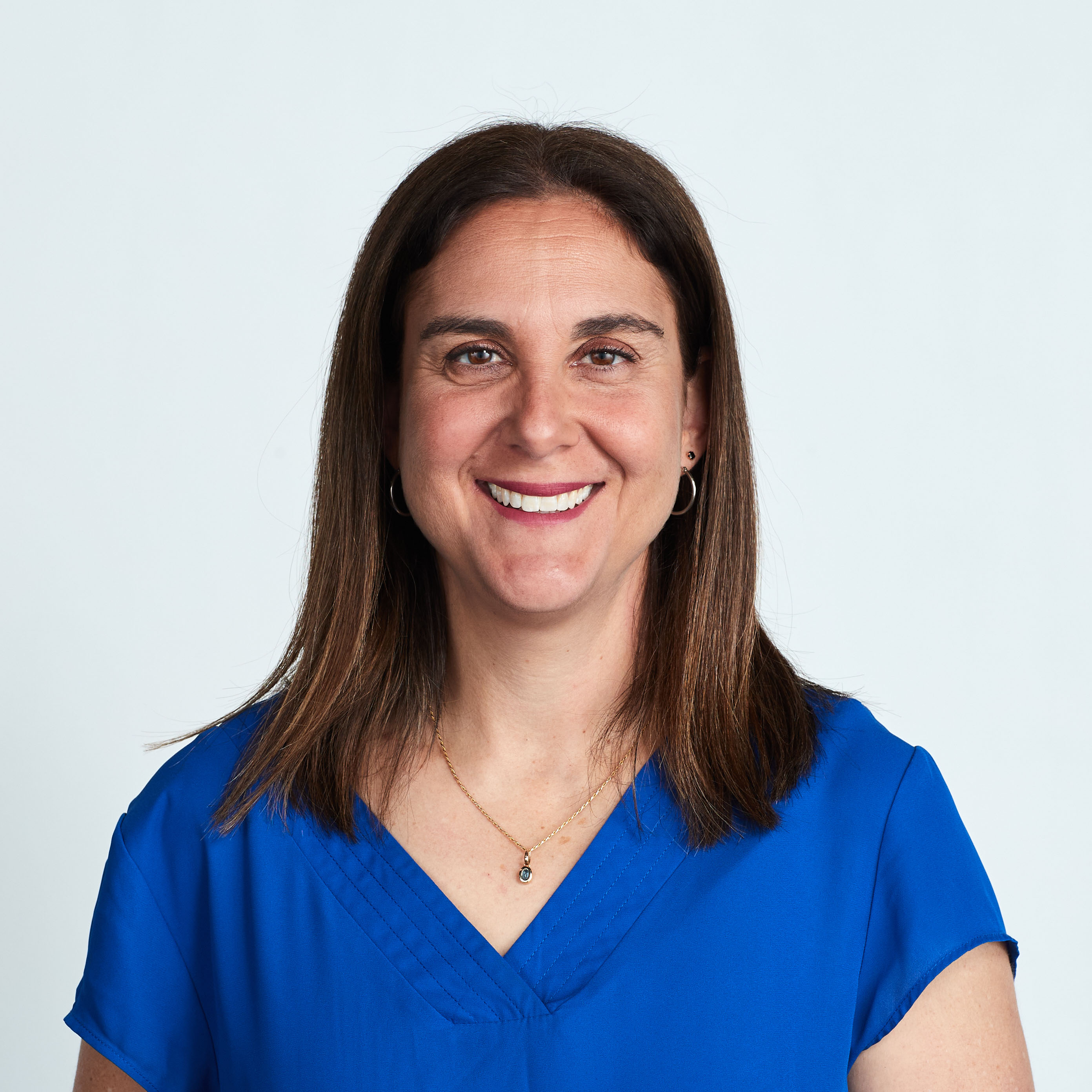
Jennifer Cohen
Dr Jennifer Cohen is a senior research fellow in the School of Clinical Medicine, Faculty of Medicine & Health at UNSW Sydney, and the Evaluation Manger at Canteen, Australia. Cohen has over 18 years experience as a clinical dietitian and researcher and her numerous professional publications focus on her research and clinical interests in the supportive care needs of children and young people with cancer, both during and after treatment. Dr Cohen was named the Australian Dietitian of the Year at the 2019 and Staff Member of the Year for the Sydney Children’s Hospitals Network in 2018.

